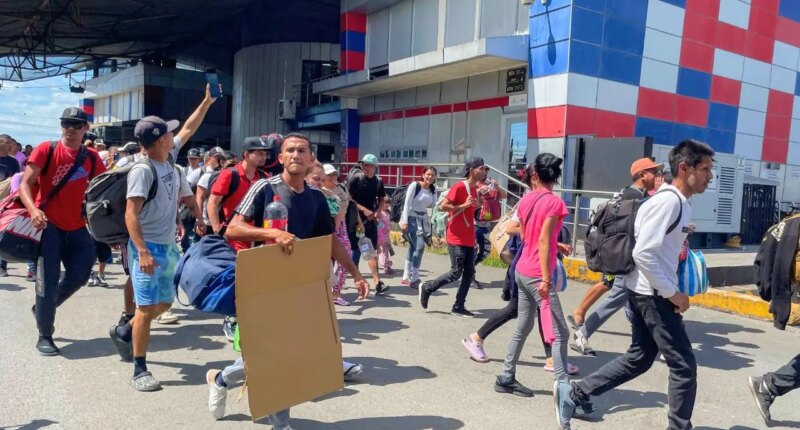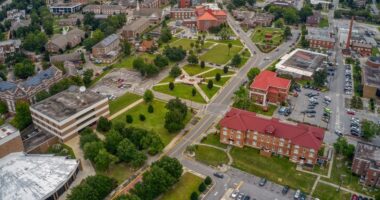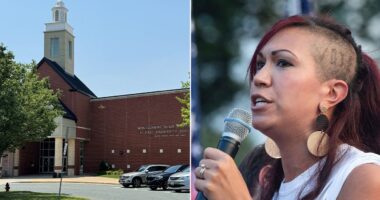Share this @internewscast.com
A recent analysis indicates that more than 14,000 migrants intent on entering the United States have turned around and headed back due to the stringent border enforcement measures implemented by the Trump administration.
Described as “reverse flow” migration, this trend predominantly affects migrants escaping from Venezuela’s economic and political instability, who were traveling north through Central America towards the U.S.
Since 2017, around 8 million people have fled the political crisis in Venezuela.
Published with the backing of the U.N. High Commissioner for Human Rights, the report by the governments of Colombia, Panama, and Costa Rica reveals a 97% drop in northbound migration this year.
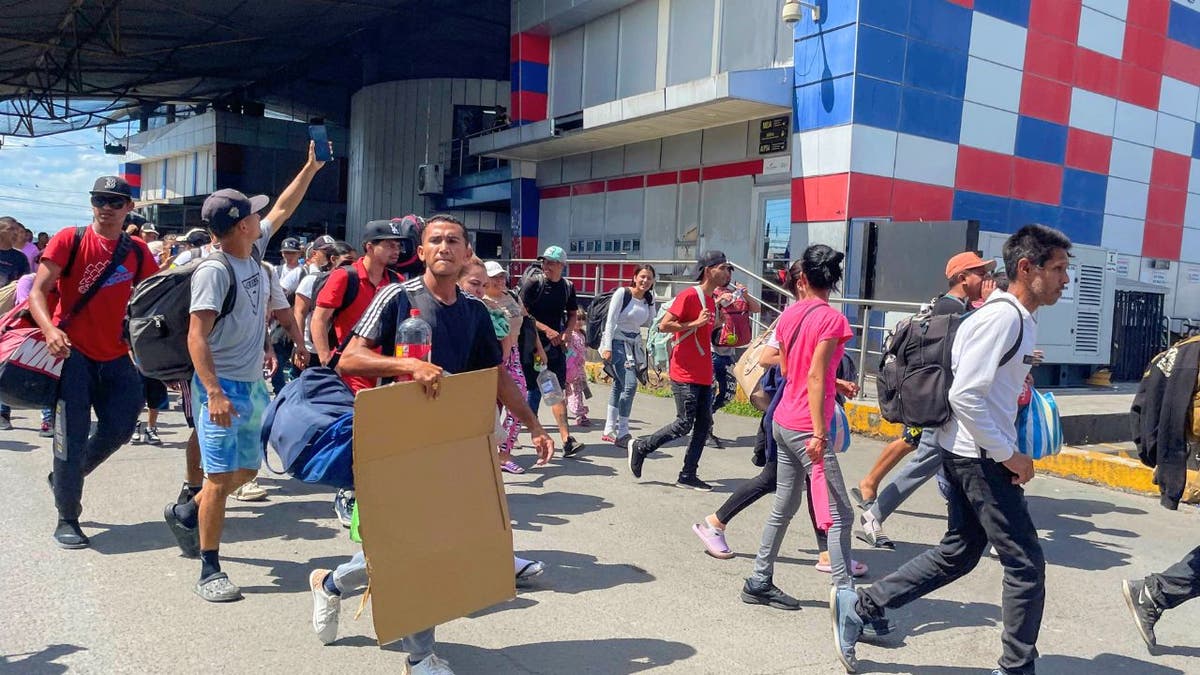
Migrants pass a border station in Paso Canoas, Panama, as many head back south after not reaching the United States. (PAUL MONTENEGRO / AFP)
The report highlights that migrants, who aspired to reach the U.S., are now in a precarious situation, often encountering violence, abuse, and exploitation.
In interviews conducted in Costa Rica, Panama, and Colombia, about half expressed a desire to return to Venezuela, while approximately a quarter planned to head to neighboring Colombia, a former hub of Venezuelan migration. Some were uncertain about their next destination.
Some migrants will continue moving south within Latin America, but the report warns they face unsafe boat journeys, dependence on smugglers and criminal groups that prey on returnees. Others remain stranded in places like Palenque, Miramar, Necoclí, Bahía Solano and Medellín, sleeping in parks or abandoned buildings without access to food, shelter or medical care.
Humanitarian monitors said many are turning to survival strategies such as informal work, begging or even transactional sex.
“We don’t know whether to stay in Colombia or go to Chile. I worry a lot about my children; they’re tired of moving so much,” one migrant said.
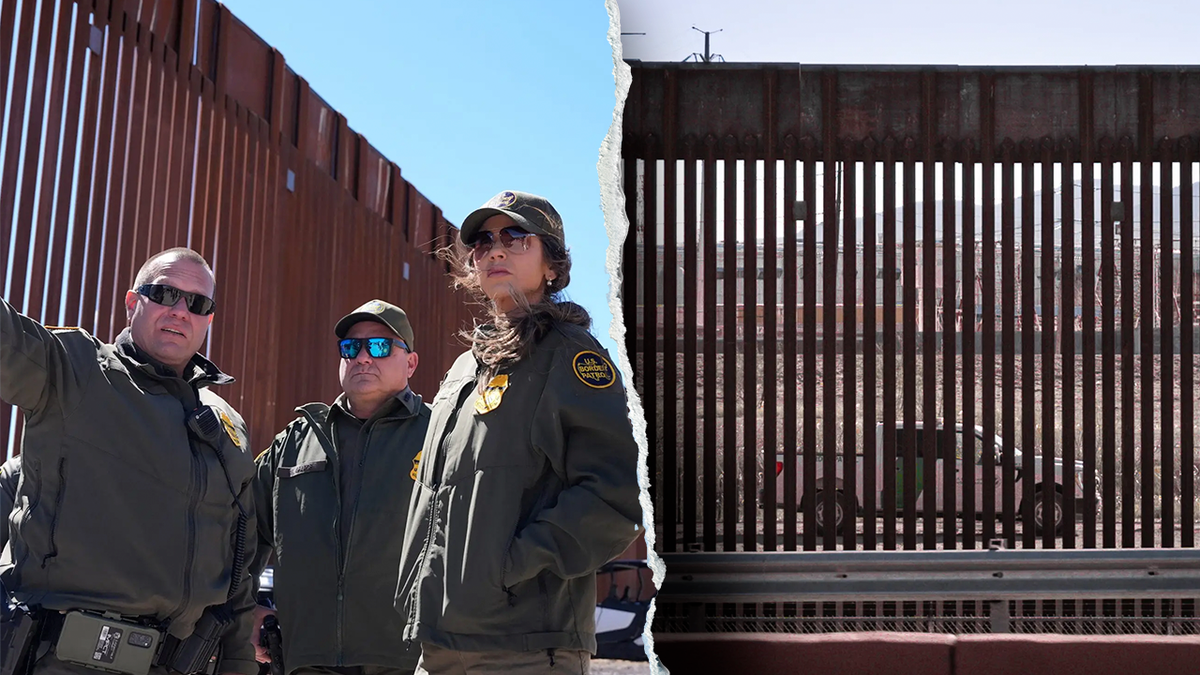
DHS Secretary Kristi Noem at the southern border wall, announcing it will be painted black as part of the Trump administration’s efforts to increase border security. (Alex Brandon/Pool via REUTERS and Fox News Photo/Joshua Comins)
“Imagine, I’m back in the same place I left many years ago chasing a dream,” another said. “Now I don’t know what to do.”
Scott Campbell, the U.N. human rights representative in Colombia, said the returnees are among the most vulnerable people on the continent and urged governments not to abandon the migrants.
“Most of these people are already victims of human rights abuses,” Campbell said. “We urge authorities to aid people in this reverse migration to prevent them from being exploited or falling into trafficking networks run by illegal armed groups.”
